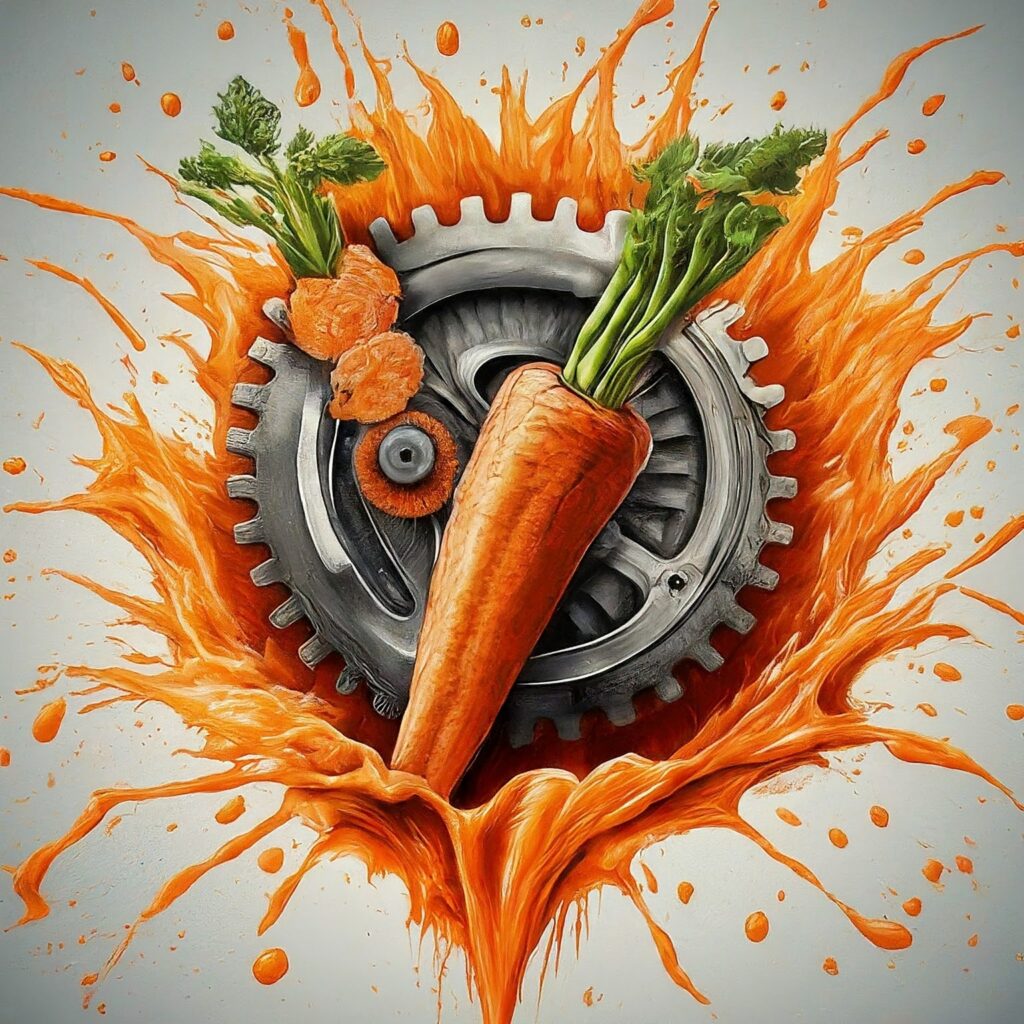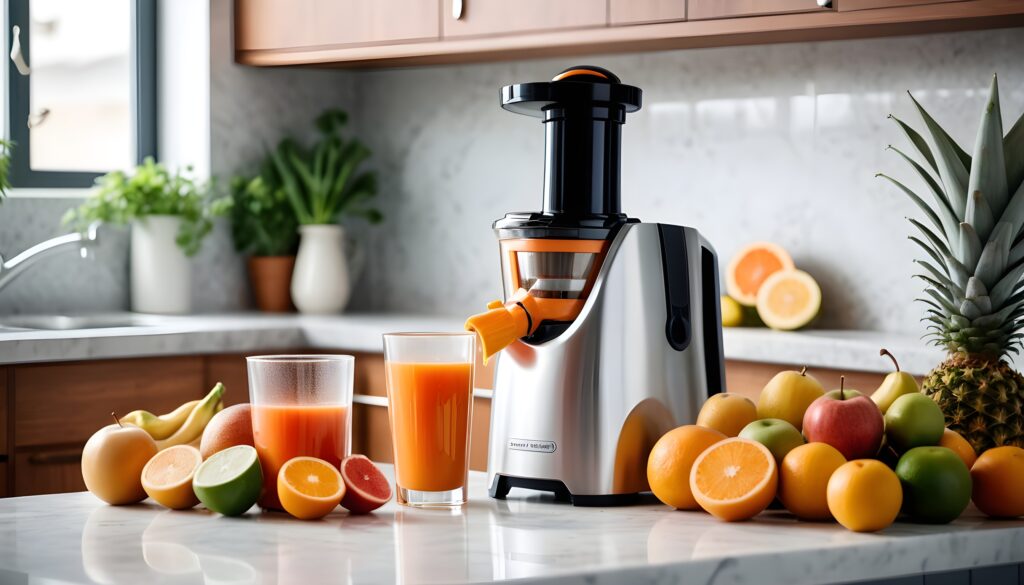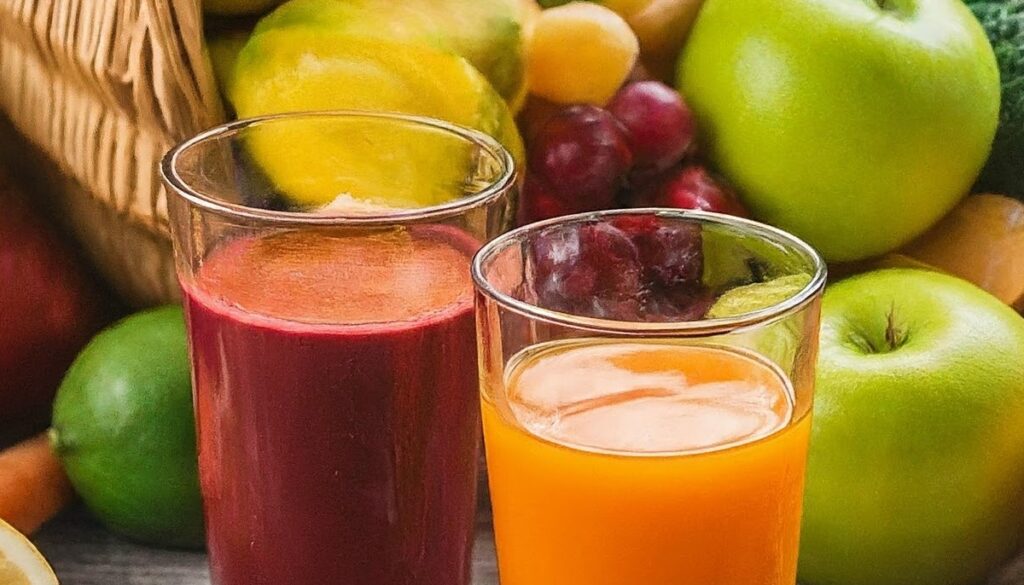Carrots! Crunchy, colorful, and bursting with vitamins, they’re a fantastic addition to any diet. But did you know you can unlock a whole new level of carrot goodness by juicing them? Fresh carrot juice is a delicious way to get your daily dose of beta-carotene, antioxidants, and other essential nutrients.
But with all the juicers out there, how do you find the perfect one to tackle those tough carrots? Don’t worry, partner, we’ve got you covered. This guide will break down the different types of juicers, their strengths with carrots, and factors to consider when making your choice.
The Two Main Contenders: Centrifugal vs. Cold Press
There are two main juicer types to consider: centrifugal and cold press. Each has its own approach to extracting that sweet carrot juice.
- Centrifugal Juicers: These work like champions by using a high-speed spinning blade to pulverize fruits and veggies. They’re generally faster and more affordable than cold press juicers.
Centrifugal Juicers and Carrots: Centrifugal juicers can handle carrots without a problem. However, the high speed can generate heat, which may degrade some nutrients and shorten the shelf life of your juice.
- Cold Press Juicers: Also known as masticating juicers, these juicers use a slower auger (think corkscrew) to squeeze the juice out of produce. This method is gentler and said to produce higher yields and juice with less oxidation, preserving more nutrients and flavor.
Cold Press Juicers and Carrots: Cold press juicers are fantastic for carrots. They extract a higher juice yield with minimal heat, potentially giving you more bang for your buck and a more nutrient-rich juice.
Choosing Your Juicer: More Than Just Carrots
Consider these factors to pick the juicer that best suits your juicin’ lifestyle:
- Budget: Centrifugal juicers tend to be more budget-friendly, while cold press juicers typically come with a higher price tag.
- Juice Yield: If you’re all about maximizing your juice output, cold press juicers generally extract more juice, especially from harder produce like carrots.
- Preparation Time: Centrifugal juicers often work faster, but require more chopping beforehand. Cold press juicers might take a bit longer but may require less prep work.
- Cleanup: Both types require cleaning, but cold press juicers can have more parts to disassemble.
- Noise Level: Centrifugal juicers tend to be louder due to their high-speed operation.
- Versatility: If you plan on juicing a variety of fruits and vegetables, consider a juicer that can handle both soft and hard ingredients.
Beyond the Basics: Other Juicer Features to Consider
- Pulp Control: Some juicers offer adjustable pulp settings, allowing you to customize the amount of pulp in your juice.
- Feed Chute Size: Wider chutes can handle larger produce pieces, while narrower chutes may require more chopping.
- Ease of Use: Look for features like safety interlocks and easy-to-assemble parts for a smooth juicing experience.
- Warranty: A good warranty provides peace of mind in case of any malfunctions.
The Bottom Line: Your Perfect Carrot-Juicing Partner
No matter which juicer you choose, you’re on your way to enjoying fresh, delicious carrot juice.
- For value-conscious juicers who prioritize speed, a centrifugal juicer can be a great option for carrots.
- If maximizing yield, minimizing oxidation, and extracting the most nutrients are your top concerns, a cold press juicer might be the better choice.
Bonus Tip: No matter which juicer you pick, washing your carrots thoroughly before juicing is essential!
So grab your favorite juicer, toss in those carrots, and get ready to experience the vibrant world of carrot juice!


